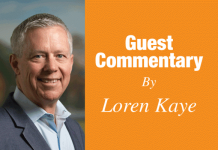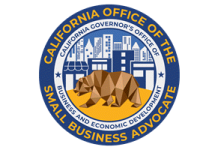 This election is one that seems like it will never end. However, there is one silver lining now that election day has passed: the cessation of the back-to-back ads supporting and opposing the various California ballot measures.
This election is one that seems like it will never end. However, there is one silver lining now that election day has passed: the cessation of the back-to-back ads supporting and opposing the various California ballot measures.
While a significant number of ballots are still left to be counted–and perhaps many more remain in the hands of the USPS that are eligible to be counted if they arrive in the local registrar’s office by November 15–there are some significant wins to report at this point and some noteworthy trends taking shape in California’s legislative races.
Ballot Measures
While the fate of Proposition 15, the split roll property tax increase, is still not final, the good news is that ‘no’ votes are currently outnumbering ‘yes’ votes. CalChamber strongly opposed Proposition 15 as the largest tax increase in California history. During the campaign, CalChamber pointed out that Prop. 15 would certainly result in higher costs for consumers and hurt small businesses in the state.
A significant win was passage of Proposition 22. CalChamber supported the measure which ensures workers who provide app-based service remain classified as independent contractors, not employees of the technology companies that create the apps. CalChamber President and CEO Allan Zaremberg applauded voter approval of the initiative saying, “Prop. 22 was a big win for California workers who want the independence, flexibility, and income opportunities provided by working for themselves. Especially in these uncertain times, we should be focused on providing workers with all options to support their families. The takeaway for the Legislature is that freelance work is integral to California’s innovation economy and should be celebrated, not discouraged.”
The fate of two other measures opposed by CalChamber includes voter rejection of Propositions 21 (statewide rent controls) and Proposition 23 (overregulation of dialysis clinics). Both of these initiatives were placed on the ballot by single special interests for the second straight election.
Two additional measures must await the results of a complete ballot count: Proposition 14, which authorizes $5.5 billion in bonds for stem cell research, leads by 2.2 percentage points, and Proposition 19, which allows certain homeowners to carry their Prop 13 property tax basis to newly purchased homes in other counties, leads by three percentage points.
Legislative Races
At this point, the outcome in some of the key races for the California Assembly and Senate is uncertain. These matchups that attract big bucks from the various interest groups will be some of the last ones called. Still there are some trends emerging that, if they hold, will be interesting to California political observers. Early signs that are encouraging for Republicans in the Assembly is that no GOP incumbent appears to have lost their seat. Strong showings in Orange County for incumbent Republicans Philip Chen (AD 45), Steven Choi (AD 68) and Janet Nguyen (AD 72) are poised for victory. Other incumbent Republicans that appear to have survived are Jordan Cunningham (AD 35), Tom Lackey (AD 36) and first-time candidate Suzette Vallardares (AD 38) who was in a runoff with another Republican.
Less rosy for Republicans is in the Senate and the apparent loss of two seats, Ling Ling Chang (SD 29) and John Moorlach (SD 37). Too close to call are Republicans Scott Wilk (SD 21) and Rosilicie Ochoa Bogh (SD 23) running in this open GOP seat. Senate runoffs featuring two Democrats favor incumbent Scott Wiener (SD 11) and Dave Cortese (SD 15) an open seat. All other Senate Democrat on the Tuesday’s ballot easily cruised to victory.
As we get additional details, CalChamber will continue to provide election updates.
Contacts: Loren Kaye, Martin Wilson


